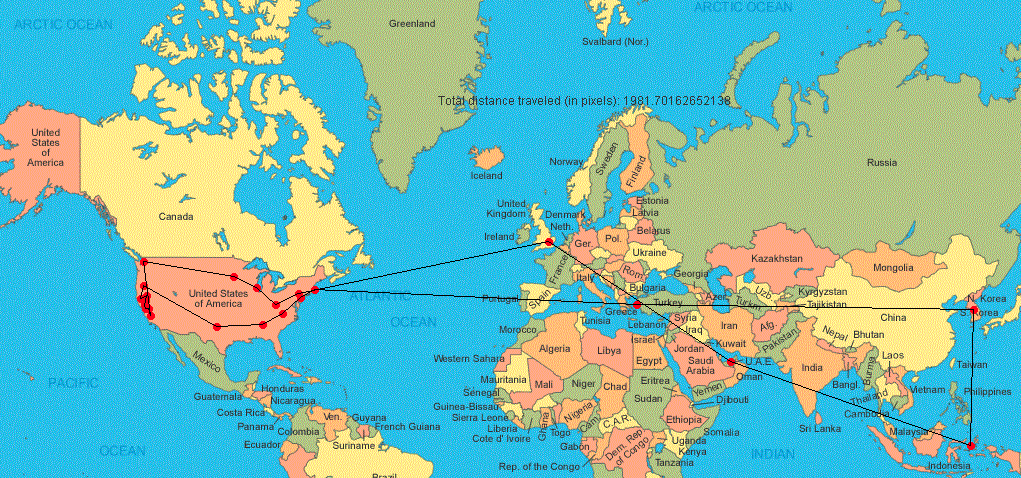Table of Contents
SPCS - Day 7
Row 1: Girls!
Afternoon Groups: (Olivia, Caelen, Nidhi), (Rohan, Jon), (Joyce, Neel), (Jonathan, Christine), (Rahul, Jannani), (Jerry, Sindhu, Akane), (Maxine, Vrinda, Tony)
Finite State Machine: Some friends downloaded a game from the Internet in which a robot flipped a coin and they had to guess whether it would turn up heads or tails. At first the game looked very easy. At least they would have a 50/50 chance of winning—or so they thought! After a while though they started to get suspicious. There seemed to be a pattern in the coin tosses. Was the game rigged? Surely not! They decided to investigate. Joe wrote down the results of their next attempts at the game and this is what they found: (h = heads, t = tails)
hhthhthhhtthhhhtthttthhhhhthhhttthhhttthhhhhhtthtt ttthtthttthhhtthhhthhhhhhhhhtthhhtttthhhhhttttttt
Topics
- FSM
- Pause
- 10:00 Kevin Dill
- Adjacency Matrix
- Intellivator Design Challenge
Assignment
Part 0: Blog - Cleanup from yesterday
Please fix up the details of yesterday's project
Part 1: Processing (Teams) - Around the world for Mousey
Mousey the Mouse wants to visit each of you next month. Download a world map, NOT the one on this page. Any kind of world map will do (as long as it's a valid image file format). Find out where everyone lives in the class and help Mousey plan the shortest possible trip. You will approximate the locations based off of the map you choose. Mousey has a jetpack and starts at Stanford.
Step 1: Background image
- Find an image of the world
- Google “background processing.js”
- Find out where everyone is from in our class
- Place an ellipse at every location
- You may want to create a class object to handle these “vertices” or locations.
Step 2: An object that has x and y
See this sample code for the Car class.
// Example: Two Car objects Car myCar1; Car myCar2; // Two objects! void setup() { size(200,200); // Parameters go inside the parentheses when the object is constructed. myCar1 = new Car(color(255,0,0),0,100,2); myCar2 = new Car(color(0,0,255),0,10,1); } void draw() { background(255); myCar1.drive(); myCar1.display(); myCar2.drive(); myCar2.display(); } // Even though there are multiple objects, we still only need one class. // No matter how many cookies we make, only one cookie cutter is needed. class Car { color c; float xpos; float ypos; float xspeed; // The Constructor is defined with arguments. Car(color tempC, float tempXpos, float tempYpos, float tempXspeed) { c = tempC; xpos = tempXpos; ypos = tempYpos; xspeed = tempXspeed; } void display() { stroke(0); fill(c); rectMode(CENTER); rect(xpos,ypos,20,10); } void drive() { xpos = xpos + xspeed; if (xpos > width) { xpos = 0; } } }
Step 3: Adjacency Matrix
You may have realized that using a matrix (or 2-D array) makes it easy to represent the graph. Construct an Adjacency Matrix, where the weights of the edges are the distances between one point and every other point.
Step 4: Shortest Path
Using some algorithm… Maybe Breadth First Search, draw a path that on the screen that highlights what's going on in the code. See example of lines above.
Step 5: Travelling Sales Person
Find the shortest distance that Mousey can go INCLUDING his return home.
Step 6: Animation
Now make the program animate!
Part 2: JavaScript - JS Shooter
Cookbook shooter game. Make sure to blog what you create!


